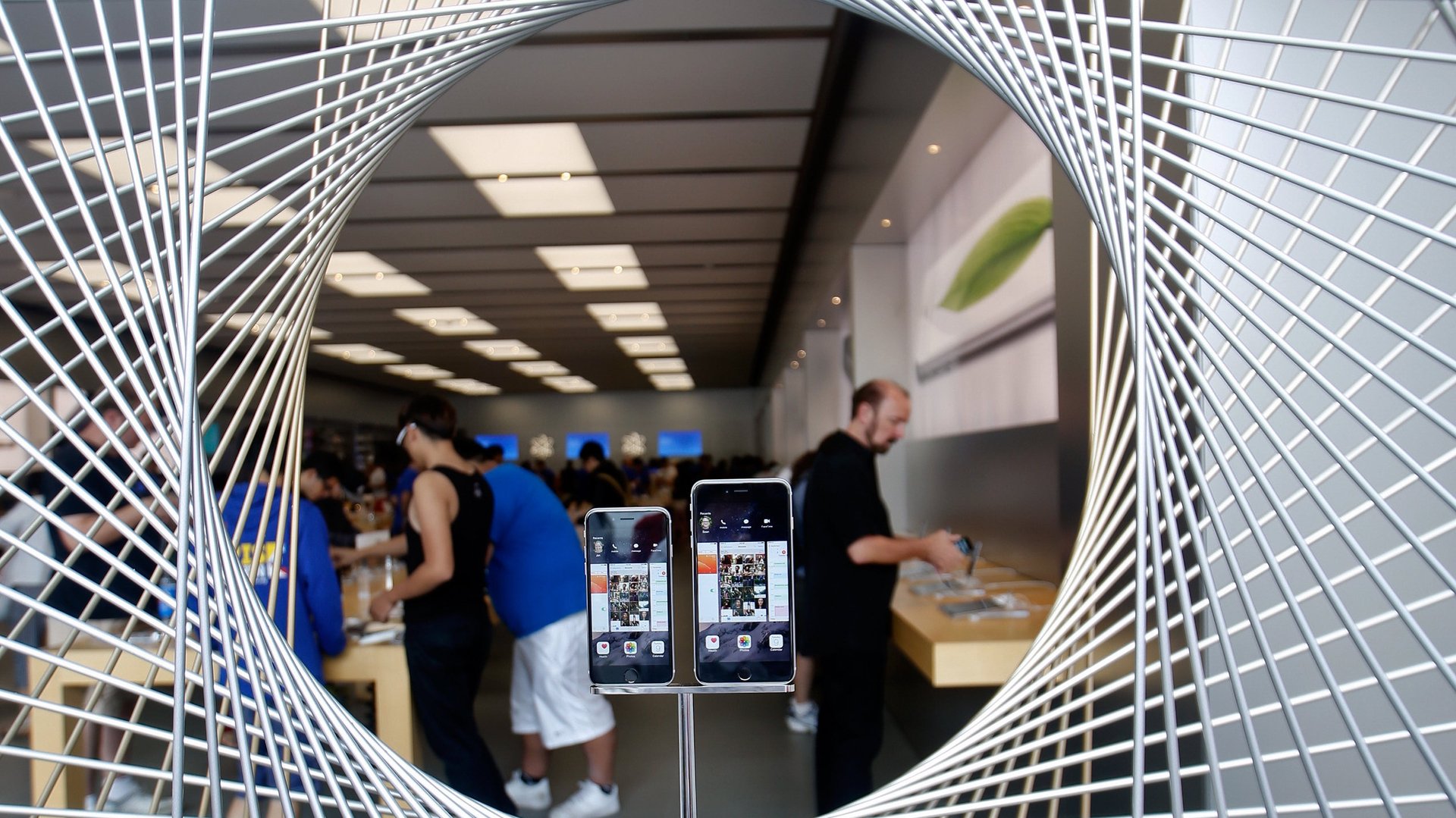Apple knew the iPhone 6 bent like crazy before it went on sale
The iPhone 6 was one of the most pliable phones ever made, although not on purpose.


The iPhone 6 was one of the most pliable phones ever made, although not on purpose.
Soon after Apple released the iPhone 6 and 6 Plus—the first oversized phone the company made—in 2014, stories swirled that the phones bent dramatically from normal usage, like pulling the phone in and out of pockets. Videos popped up of people bending the phones with little effort, but Apple maintained they were built to the same high standards as any of its previous devices. New court documents uncovered by Motherboard today (May 24) show that Apple actually knew the phones would bend considerably more than the iPhone 5s before it released the phones.
Apple was taken to court in August 2016 over what became known as “Bendgate” and the “touch disease” that affected the bendy iPhones. Users with problematic phones reported flickering grey displays and unresponsive touchscreens. As part of the documentation submitted to a class-action suit concerning the issue, Motherboard found Apple testing results that suggested the iPhone 6 was 3.3 times more likely to bend than the iPhone 5s, and the iPhone 6 Plus was 7.2 times more likely. Apple only acknowledged publicly that there might be an issue with some of its phones in November 2016, Motherboard points out, well after the news cycle had died, and Apple was onto marketing the iPhone 7. Apple then announced it would drop the charge to fix affected screens from $349 to $149.
Apple has been known to avoid acknowledging issues with its devices until media scrutiny, or lawsuits, pile on. Founder Steve Jobs once told a customer who believed that their iPhone 4 had reception issues that they were holding the phone wrong—it was later revealed it was an issue and Jobs gave away free cases to affected customers, months later. Similarly, users have long believed that Apple was intentionally slowing down their phones when new iPhone operating systems were released. After years of saying this was not the case, Apple eventually admitted it was in fact doing this in certain instances to preserve battery life. It’s now being sued over the practice.
Apple wasn’t immediately available to comment on the new court documents.